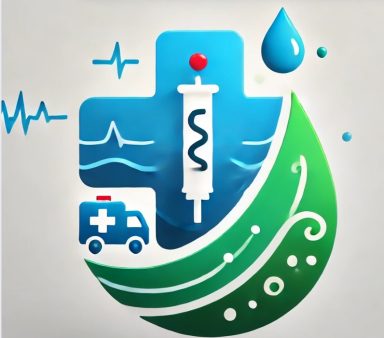Liberia
Liberia is located on the west coast of Africa and is the oldest republic in the continent. Liberia is bordered by Sierra Leone on the west, Guinea on the north, Ivory Coast on the east, and the Atlantic Ocean on the south. It has a population of 5,305,117 million and covers an area of 96,320 km2 (37,189 square miles). The country is geographically divided into five regions and 15 counties, population ranging from 74,317 in Grand Kru County to 1,434,974 in Montserrado County.
Crisis in Liberia
Liberia suffered devastating civil wars in the 1990s, with 60,000 to 80,000 deaths and 800,000 people displaced. Already facing hardship, the country’s situation worsened with the 2014 Ebola outbreak, which claimed over 4,800 lives and crippled the healthcare system and economy. Many health facilities, especially outside Monrovia, were left in ruins.
Health Care
The war and pandemics have devastated Liberia’s population and economy, making it the fourth poorest country, with 85% living below the poverty line. The fragile healthcare system, worsened by COVID-19, offers only 2.1 facilities per 10,000 people—far below the WHO’s recommended 44.5. As a result, many lack access to diabetes diagnostics, treatment, and monitoring tools.
Diabetes in Liberia
According to WHO data, diabetes caused 650 deaths in Liberia, or 1.93% of total deaths. The International Diabetes Federation reports that 2.1% of the population has diabetes, with 57.6% undiagnosed. Among those under 60, diabetes-related deaths are 2.4%. Obesity is rising, especially among women (24.3% overweight, 12.3% obese). Liberia is expected to see the highest increase in diabetes prevalence—over 100% between 2014 and 2030. A study found that only 6.7% of patients were diagnosed, 6% treated, and just 4% received regular checkups—significantly lower than in other countries.
Our team
Two years ago, we established a food forest on an 8-acre farm in Fendall, Monrovia, Liberia, to address the limited diversity in the local food supply. With 15 varieties of fruit trees, our goal is to grow all indigenous African fruit species. Since a lack of food diversity contributes to health issues such as diabetes—and hospitals lack the resources to properly treat this condition—we aim to build a diabetes center on the farm and are seeking donations or investments to make this possible.
© Copyright. All rights reserved.
We hebben je toestemming nodig om de vertalingen te laden
Om de inhoud van de website te vertalen gebruiken we een externe dienstverlener, die mogelijk gegevens over je activiteiten verzamelt. Lees het privacybeleid van de dienst en accepteer dit, om de vertalingen te bekijken.
